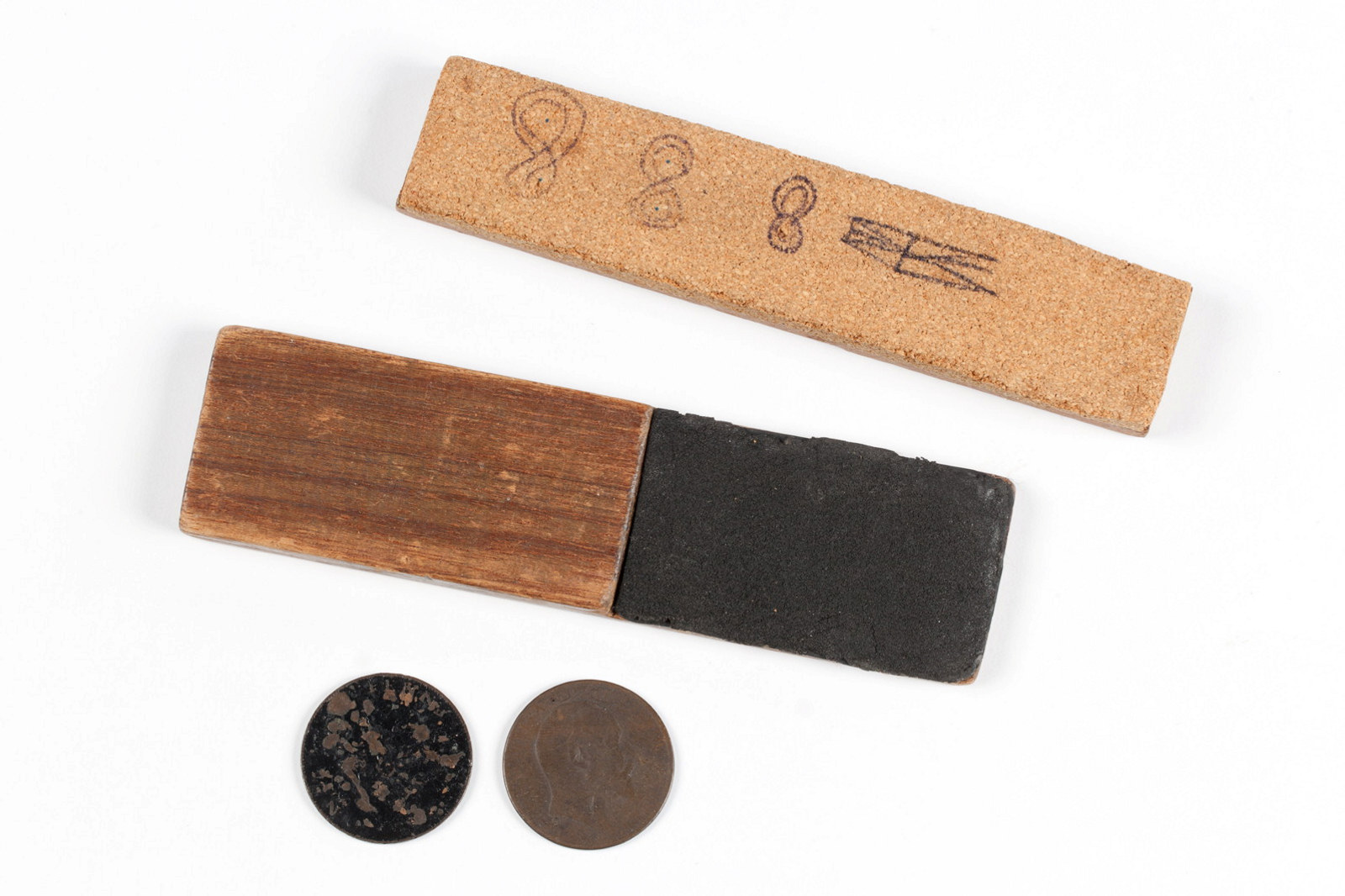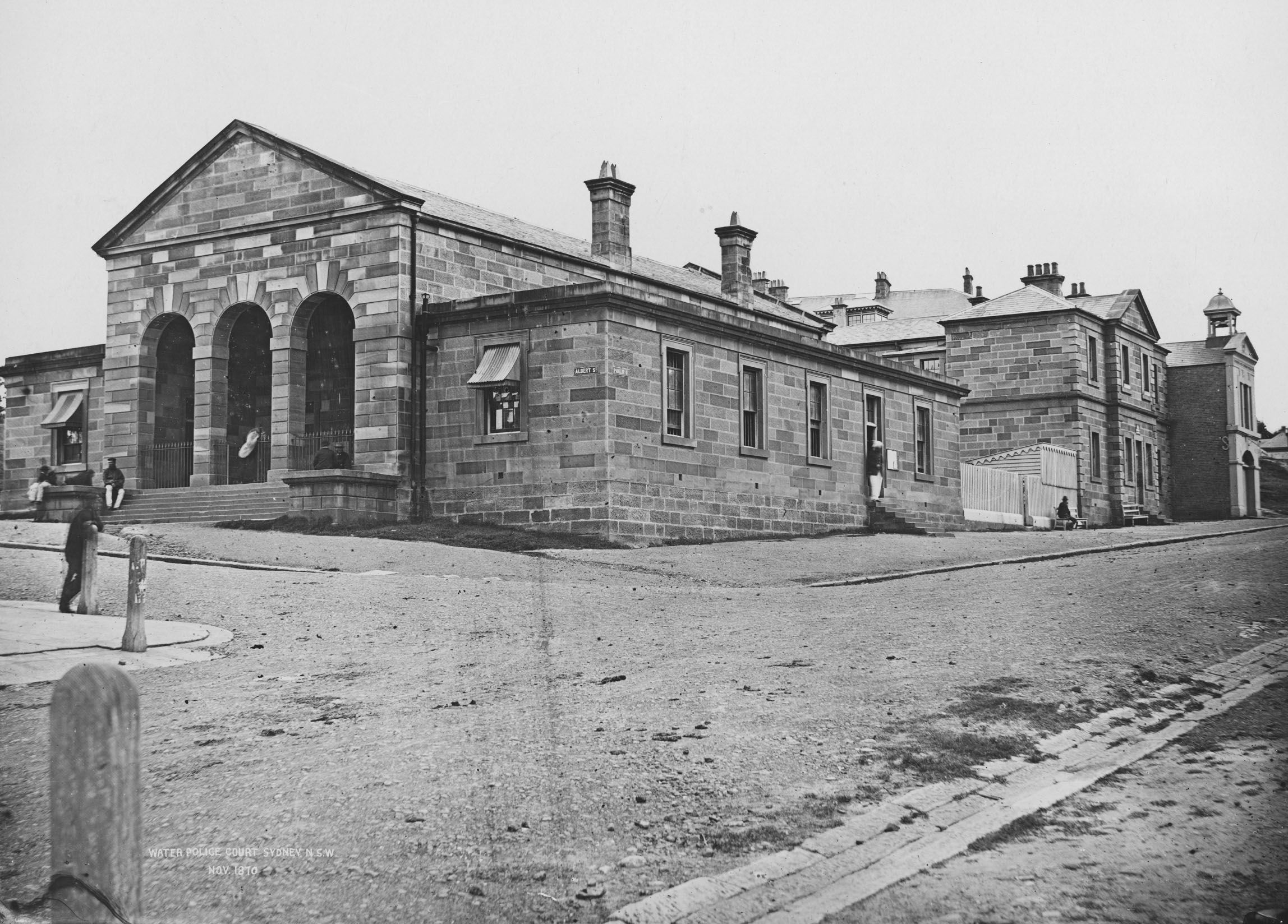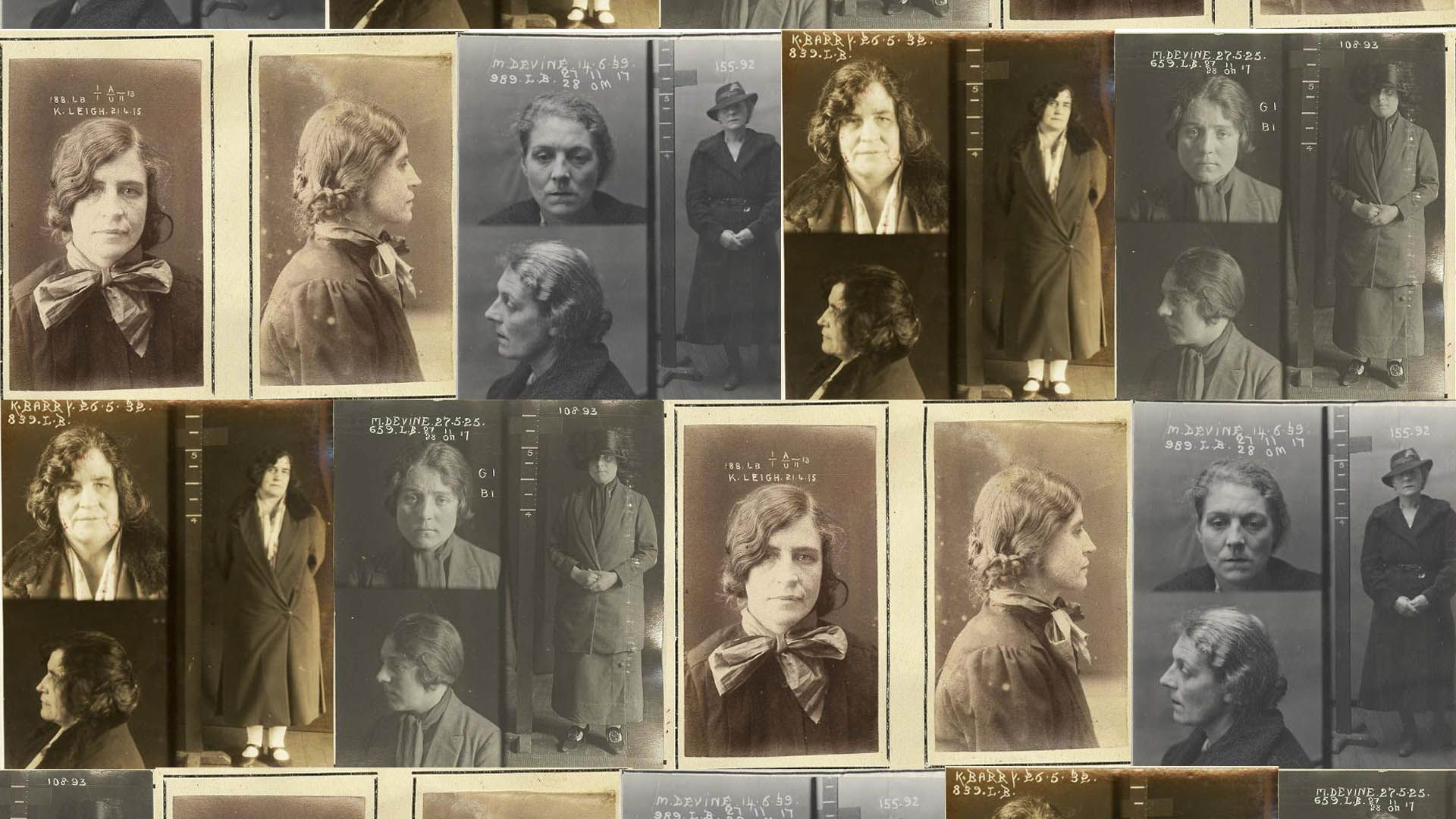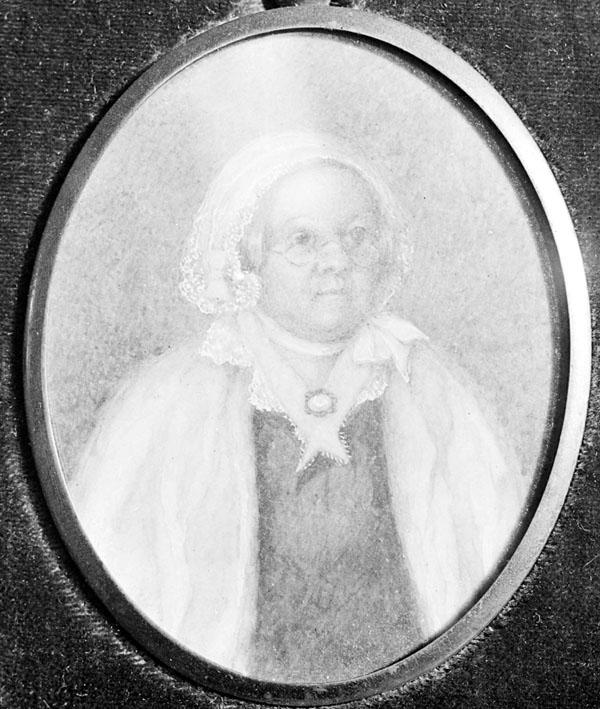George Freeman
... there was only one thing I wanted out of life. I wanted to be a crook. Not just any crook, but the crook, the BIGGEST – the man with money, power, influence. Working for a living never entered my head.
George Freeman
In 1977 the National Times published a grainy photograph taken at Randwick Racecourse showing underworld identity George Freeman in company with New South Wales Chief Stipendiary Magistrate Murray Farquhar. It became an iconic image, representing links between criminals and the state. For many it exemplified ‘everything that was rotten about the state of NSW in the 1970s’.
A charismatic and persuasive man, Freeman rose to become one of Sydney’s leading figures of organised crime, in particular dominating the racing and illegal gambling industries. He formed strong allegiances with Lennie McPherson (p98) and Stan ‘The Man’ Smith, with the trio allegedly controlling much of the vice trade in Sydney during the 1970s.
Freeman always denied involvement with illegal drugs, although many of his close associates were undeniably engaged in dealing and trafficking. Ironically his death from an asthma attack at the age of 56 was linked by the coroner to a long-standing, secret addiction to the (legal) drug pethidine.
Published on
More stories
Browse all
Come in spinner!
Gambling in Australia is regulated by the state and some types of gambling are illegal. The game Two-up, with its catch cry of ‘Come in Spinner!’, is legal only on Anzac Day and only in some states

Museum stories
Gritty business
Immerse yourself in Sydney's chilling criminal past in this unique water-front museum of policing, law and disorder – with its grizzly collection of underworld weapons along with tales of mayhem and lawlessness, aptly described as an educational resource befitting a 'professor in crime'

Tilly Devine & the Razor Gang Wars, 1927–1931
Learn about the Razor gangs and their leaders Tilly Devine and Kate Leigh

Mary Reibey - convict and businesswoman
Mary Reibey is one of the most famous early convict women in the colony of New South Wales